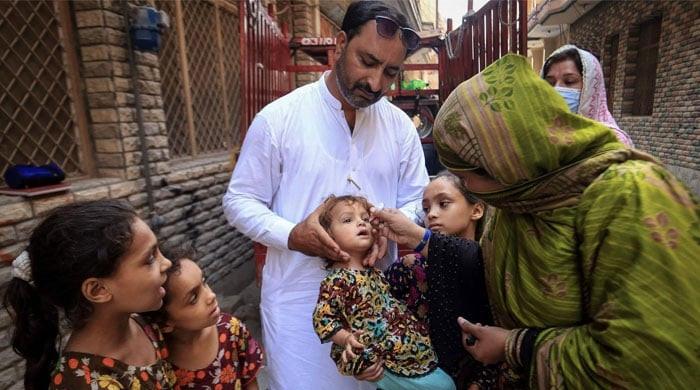Is the world ready for this new virus after COVID?
"We saw with COVID-19 how unprepared world was and we want to be better equipped for the next outbreak," scientist says
June 26, 2023

Scientists are attempting to find a new virus that may pose a serious public health emergency as the COVID-19 lessons have compelled experts to prepare for the next outbreak and timely contain it.
Researchers have drawn some similarities with the less known Langya virus, which is somewhat similar to the coronavirus, according to an article published in the journal Nature Communications.
Langya virus, just like COVID, causes respiratory complications and fever at its initial stages, eventually turning into pneumonia. It was first detected in China last year and was contracted by 35 farmers and other residents,
Researchers have warned that it wasn't the first time a Henipavirus — the family of Langya virus — has jumped to people, and it won’t be the last.
According to Dr Ariel Isaacs, a researcher at the School of Chemistry and Molecular Biosciences at the University of Queensland in Australia, said: “Humanity is at an important juncture with the genus of viruses and can expect more spill-over events from animals to people.”
"It’s important we understand the inner workings of these emerging viruses," he said in a statement.
Here is what you need to know about this new virus.
What is Henipaviruses?
These viruses are the most fatal of paramyxoviruses, killing around 70% of those who are infected.
These were first detected in humans as the Nipah virus in the late 1980s, and the Hendra virus, in Australia in 1994, from pigs and horses to humans, respectively.
World Health Organisation (WHO) said pigs, fruit bats, cats, dogs, horses, and humans are natural carriers of Henipaviruses.
Hendra virus was limited to Australia, but Nipah caused big trouble.
"The authors wrote that more concerningly, transmission of Nipah among humans has been reported, in family members and caregivers of those sickened," authors wrote.
Both viruses can cause flu-like symptoms and respiratory complications leading to severe diseases with neurologic symptoms and death.
Astonishingly, new Henipaviruses are being detected on a routine basis in animals, including the Cedar virus in fruit bats in Australia, the Ghana virus in bats in Africa, the Gamak & Daeryong viruses in shrews in Korea, and the Mòjiāng virus in rats in China.
Authors noted: "It is suspected that the Ghana virus can spill over to humans, as is the case with Nipah, Hendra, and Langya viruses."
Comparison of Langya virus with other Henipaviruses?
The authors of the article noted that Langya is closely related to the Mòjiāng virus, which presents with symptoms similar to those of the initial COVID-19.
Langya and Mòjiāng are responsible for causing severe pneumonia with Mòjiāng tending to cause ground-glass opacities on lung X-ray in those infected, as well as the often-fatal severe acute respiratory distress syndrome (ARDS) — two more similarities with the initial COVID-19, a 2020 article in Frontiers in Public Health suggested.
What is treatment for Langya virus or Henipaviruses?
There is no treatment for these pathogens as of now however, these are on the WHO list prioritising research in vaccines and therapeutics.
Authors noted that a vaccine against the Hendra virus is currently available for animals, and trials of a similar vaccine are underway in humans.
But these may not work on Langya and Mòjiāng — which is more similar to Langya than Hendra — the authors stated.
"These are viruses that can cause severe disease and have the potential to get out of control if we're not properly prepared," Dr Daniel Watterson, author of the paper said in the news release.
"We saw with COVID-19 how unprepared the world was for a widespread viral outbreak, and we want to be better equipped for the next outbreak."









